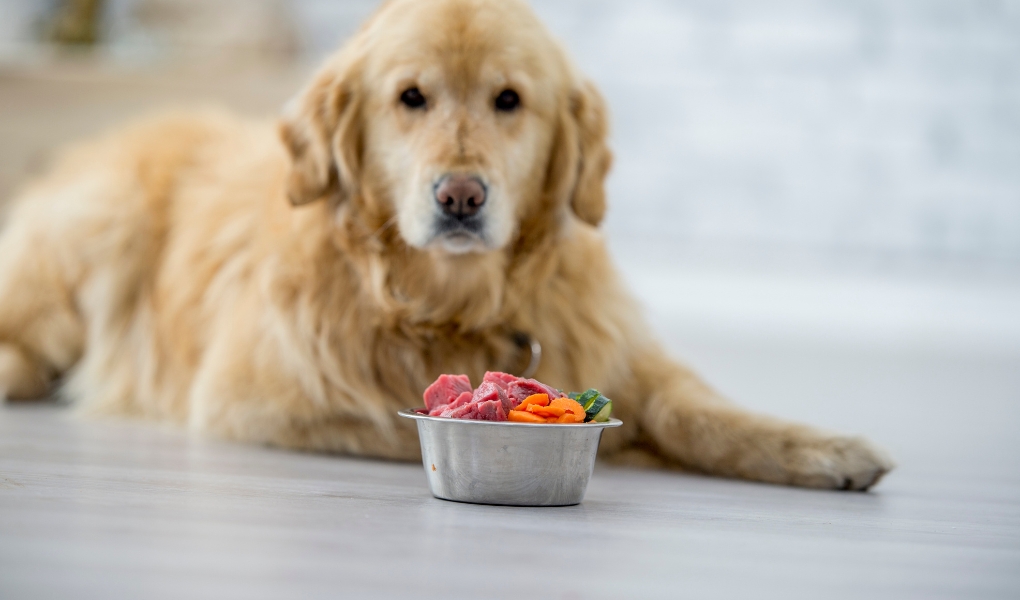Table of Contents
ToggleA Comprehensive Guide
If your dog is throwing up undigested food hours after eating, it can be a worrying and confusing experience. Understanding the potential causes and knowing when to seek veterinary help is crucial for ensuring your dog’s health and well-being. This comprehensive guide explores the reasons behind this issue and offers solutions to help manage it.
Introduction to Regurgitation vs. Vomiting
It’s important to distinguish between regurgitation and vomiting, as they have different causes and implications:
- Regurgitation: The passive expulsion of undigested food from the esophagus. It usually happens shortly after eating and the food is often undigested and tubular in shape.
- Vomiting: The active expulsion of food from the stomach or small intestine. It is usually preceded by signs of nausea, such as drooling, lip licking, and retching. Vomited food may be partially digested and mixed with bile.
Common Causes of Regurgitation and Vomiting
Several factors can cause your dog to throw up undigested food hours after eating:
Eating Too Quickly
- Description: Dogs that eat too quickly may not chew their food properly, leading to regurgitation. Rapid eating can cause food to expand in the stomach, leading to discomfort and vomiting.
- Solution: Use a slow feeder bowl or spread the food out on a flat surface to encourage slower eating.
Dietary Indiscretion
- Description: Eating inappropriate items (e.g., trash, foreign objects) or a sudden change in diet can irritate the stomach and cause vomiting.
- Solution: Monitor what your dog eats and avoid sudden changes in diet. Gradually introduce new foods over a week.
Food Intolerance or Allergy
- Description: Certain ingredients in the diet may cause gastrointestinal upset due to intolerance or allergy.
- Solution: Work with your veterinarian to identify and eliminate problematic foods from your dog's diet.
Potential Health Issues
Throwing up undigested food can be a sign of underlying health issues:
Gastrointestinal Disorders
- Description: Conditions like gastritis, gastroenteritis, or inflammatory bowel disease (IBD) can cause chronic vomiting.
- Symptoms: Vomiting, diarrhea, weight loss, and lethargy.
- Solution: Seek veterinary diagnosis and treatment, which may include dietary changes and medication.
Megaesophagus
- Description: A condition where the esophagus is enlarged and loses its ability to move food to the stomach effectively, causing regurgitation.
- Symptoms:Regurgitation, weight loss, and aspiration pneumonia.
- Solution:Management includes feeding smaller, more frequent meals, using elevated feeding bowls, and medications prescribed by a veterinarian.
Obstructions
- Description: Blockages in the stomach or intestines due to foreign objects, tumors, or severe constipation can prevent food from moving through the digestive tract.
- Symptoms: Persistent vomiting, abdominal pain, lack of appetite, and lethargy.
- Solution: Immediate veterinary attention is required. Treatment may involve surgery or other interventions.
Bloat (Gastric Dilatation-Volvulus)
- Description: A life-threatening condition where the stomach fills with gas and twists, blocking food and gas from leaving the stomach.
- Symptoms: Distended abdomen, retching without vomiting, restlessness, and rapid breathing.
- Solution: This is an emergency situation requiring immediate veterinary intervention. Surgery is often necessary.
Managing and Preventing Regurgitation and Vomiting
Feeding Practices
- Small, Frequent Meals: Feed your dog smaller amounts of food more frequently throughout the day to reduce the chance of regurgitation and vomiting.
- Elevated Feeding: For dogs with conditions like megaesophagus, using an elevated feeding bowl can help food move down the esophagus more effectively.
Dietary Adjustments
- High-Quality Diet: Ensure your dog is eating a high-quality, easily digestible diet that meets their nutritional needs.
- Elimination Diet: If food intolerance or allergies are suspected, work with your veterinarian to conduct an elimination diet to identify problematic ingredients.
Monitor Eating Habits
- Slow Feeding Bowls: Use slow feeder bowls to prevent rapid eating.
- Supervised Feeding: Monitor your dog during feeding times to ensure they are eating calmly and not too quickly.
When to Seek Veterinary Help
If your dog is frequently throwing up undigested food, it’s important to seek veterinary help to rule out serious health issues. Here are some signs that require immediate attention:
- Persistent Vomiting or Regurgitation: Frequent episodes that do not resolve with dietary changes.
- Weight Loss: Noticeable weight loss over a short period.
- Lethargy and Weakness: Unusual tiredness or lack of energy.
- Abdominal Pain: Signs of pain when the abdomen is touched.
- Dehydration: Dry gums, sunken eyes, and decreased skin elasticity.
Conclusion
Understanding why your dog is throwing up undigested food hours after eating is crucial for addressing the underlying causes and ensuring their health and well-being. Whether it’s due to eating habits, dietary issues, or more serious health conditions, proper diagnosis and management are essential. For more expert insights and comprehensive guides, explore our other blog posts at Harmony Dog Food.






